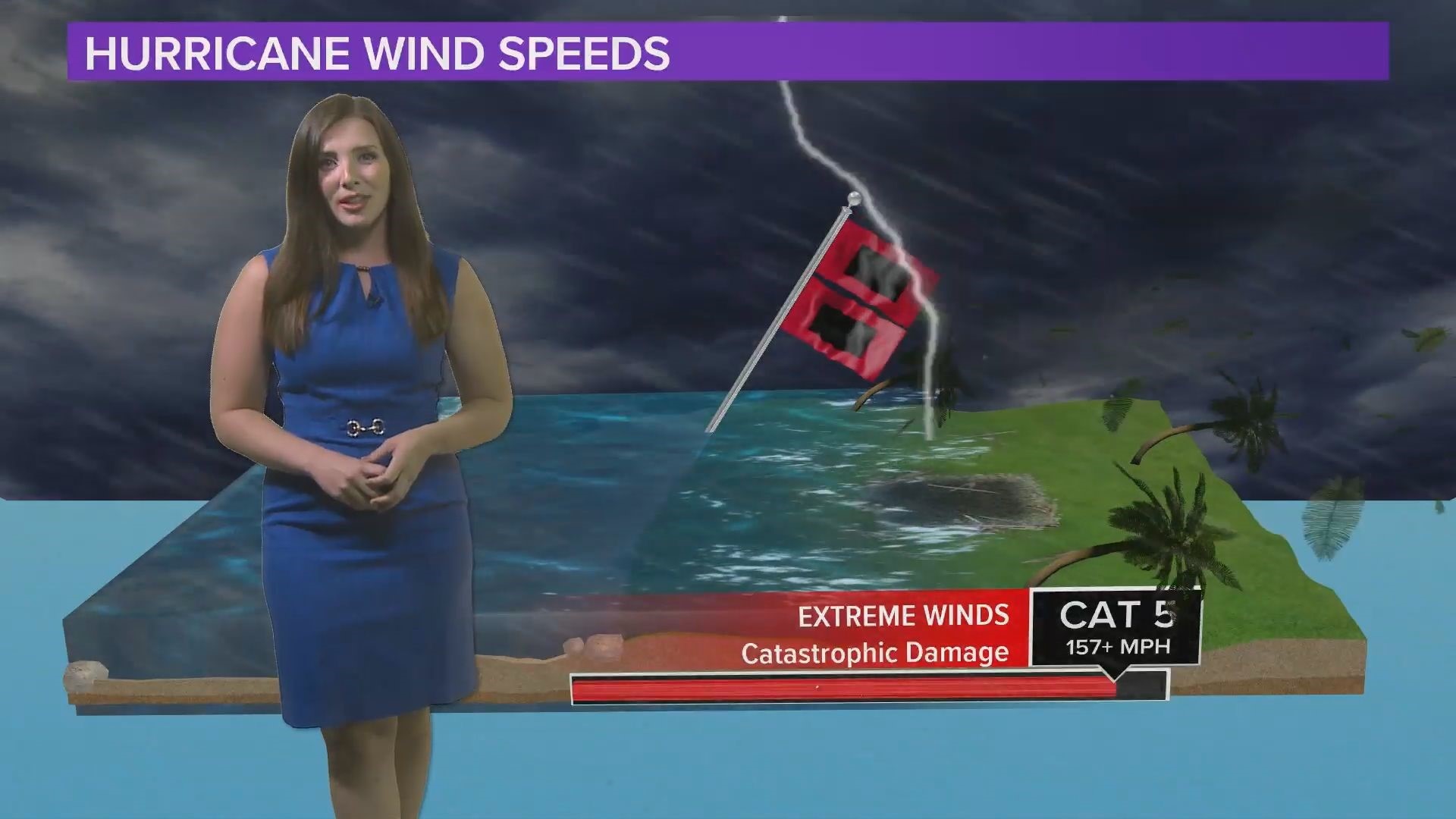COLUMBIA, S.C. — You see them every hurricane storm season: those ratings that go from Category 1 to Category 5 for hurricane intensity. But what do they mean?
Hurricane categories are based on The Saffir-Simpson Hurricane Wind Scale and are rated from 1 to 5 based on wind speed. The 1 to 5 rating scale estimates potential property damage.
According to the National Hurricane center, hurricanes that reach a Category 3 or higher are considered major hurricanes because of their potential for loss of life and damage. Categories 1 and 2 storms still cause damages and are dangerous, requiring preventative measures.
According to the NHC website, these are the differences in categories.
Category 1: Winds are between 74-95 miles per hour. These storms have very dangerous winds that will produce some damage. Homes could see damage to roof, shingles, vinyl siding and gutters. Branches can snap and trees with shallow roots may fall over. Power outages caused by damaged power lines could last a few days.
Category 2: Winds are between 96-110 miles per hour. These storms have extremely dangerous winds that will cause extensive damage. Homes could see damage to roof, shingles, vinyl siding and gutters. Many shallowly rooted trees could snap or be uprooted and block roadways. Near-total power loss is expected with outages that could last from several days to weeks.
Category 3-5 are considered major.
Category 3: Winds are between 111-129 miles per hour. These storms have devastating damage. Homes may receive major damage. Many trees could snap or be uprooted and block roadways. Electricity and water could be unavailable for several days to weeks.
Category 4: Winds are between 130-156 miles per hour. These storms have catastrophic damage. Homes may sustain severe damage with the loss of most roof structure and/or walls. Most trees could be snapped or uprooted and power poles downed. Power outages could last weeks to months, along with the area being uninhabitable for weeks or months.
Category 5: Winds are 157 miles per hour or higher. These storms have catastrophic damage. A high percentage of homes may be destroyed, with total roof failure and wall collapse. Fallen trees and power poles could isolate residential areas and power outages could last for weeks to possibly months. Most of the area could be uninhabitable for weeks or months.
Learn more at the National Hurricane Center's website.
You can keep up with the latest on the storm online with WLTX, and by downloading the WLTX app.

